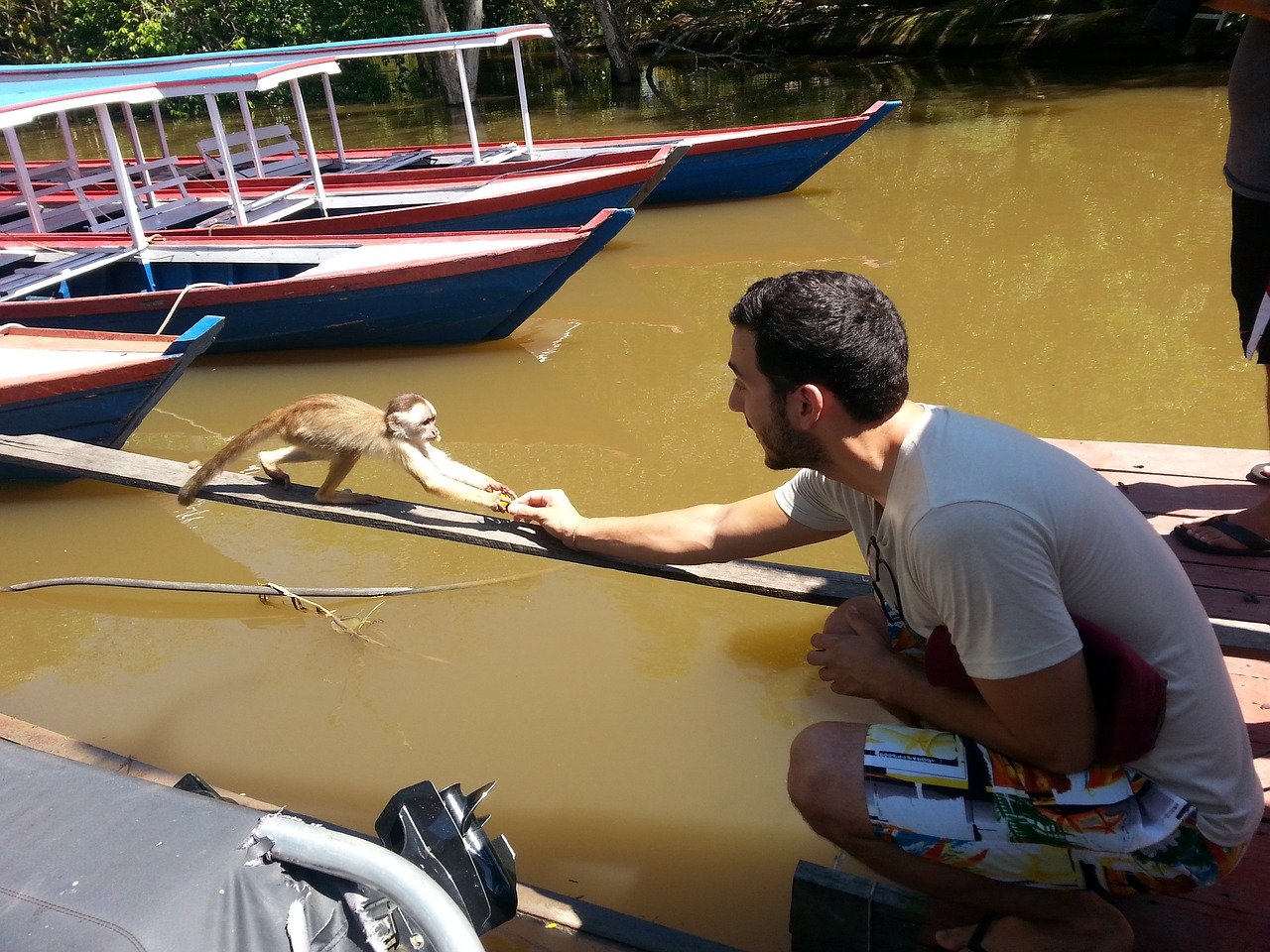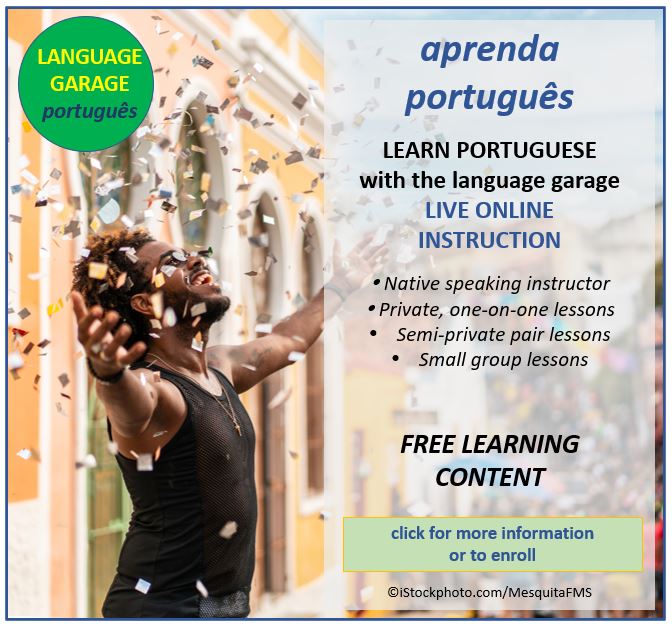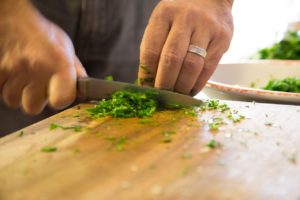Image by papoutsis89 from Pixabay
Você tem um animal de estimação/ um pet? Do you have a pet?
People keep all sorts of animals as pets, but the most common ones are um cachorro / uma cachorra a dog, um gato/ uma gata a cat, um peixinho dourado a goldfish, um periquito / uma periquita a parakeet, um papagaio a parrot, um hamster a hamster. Two animals that aren’t usually pets but that you can often find in or around buildings are: um camundongo a mouse, um rato / uma rata a rat.
- Temos um cachorro e um gato.
We have a dog and a cat. - Qual o nome do seu cachorro / gato?
What’s your dog’s/cat’s name?
- Estou brincando com nosso cãozinho.
I’m playing with our puppy. - Estou acariciando nosso gatinho.
I’m petting our kitten. - O seu cachorro morde?
Does your dog bite? - O seu gato arranha?
Does your cat scratch? - Tenho um peixinho dourado em uma tigela de vidro.
I have a goldfish in a fishbowl. - Tenho muitos peixes em um aquário.
I have a lot of fish in an aquarium. - Temos dois hamsters em uma gaiola.
We have two hamsters in a cage. - Meu papagaio fala muito.
My parrot talks a lot. - (Eu) Gritei quando vi um camundongo.
I screamed when I saw a mouse. - Aquilo não é um camundongo, é um rato!
That’s not a mouse, it’s a rat!
Que som faz um cachorro? What sound does a dog make?
In English, dogs say “woof” and cats say “meow,” but of course that’s all different in LANGUAGE.
- Os cachorros latem. Um cachorro faz “au, au”!
Dogs bark. A dog says “Woof!” - Os gatos miam. Um gato faz “miau”!
Cats meow. A cat says “Meow!” - Os pássaros cantam. Um pássaro faz “piu, piu”!
Birds chirp. A bird says “Tweet!” - As vacas mugem. Uma vaca faz “muuuu”!.
Cows moo. A cow says “moo.” - Os galos cantam. Um galo faz “cocorocó”!.
Roosters crow. A rooster says “cock-a-doodle-do.” - Os patos grasnam. Um pato faz “quá quá”.
Ducks quack. A duck says “quack.” - Os porcos roncam. Um porco faz “oinc oinc”.
Pigs squeal. A pig says “oink oink.” - Os cachorros rosnam quando estão bravos.
Dogs growl when they’re angry. - Os gatos ronronam quando estão felizes.
Cats purr when they’re happy.
Na Fazenda On the Farm
The most usual animals on a farm are: um cavalo a horse, uma vaca a cow, um boi a bull, um porco a pig, um carneiro a sheep, uma galinha a chicken, um ganso a goose, um bode a goat, um burro a donkey.
- O cavalo está correndo pelo pasto.
The horse is running in the pasture. - As vacas estão no celeiro.
The cows are in the barn. - Os porcos estão deitados na lama.
The pigs are lying in the mud. - As galinhas estão no galinheiro.
The chickens are in the coop. - Os fazendeiros tiram leite das vacas.
The farmer milks the cows. - Galinhas botam ovos.
Chickens lay eggs. - Lã vem de carneiros.
Wool comes from sheep.
Some other words related to animals that you want to know are: o pelo fur, as escamas scales, um rabo a tail, um casco a hoof, um chifre a horn, uma pena a feather, uma crina a mane, uma garra a claw.
- O cavalo tem uma crina linda.
The horse has a beautiful mane. - O ganso tem penas brancas.
The goose has white feathers. - Bois têm chifres.
Bulls have horns. - O porco tem um rabo pequeno.
The pig has a little tail. - Quais animais têm cascos?
Which animals have hooves? - Cuidado! O gato tem garras afiadas.
Be careful! The cat has sharp claws.
Aves Birds
Here’s some vocabulary for our feathered friends: um pássaro / um passarinho a bird, um pato a duck, uma águia an eagle, um gavião a hawk, uma pomba a pigeon, um perú a turkey, um pavão a peacock, um cisne a swan, uma coruja an owl, uma gaivota a seagull.
- Você ouve os pássaros?
Do you hear the birds? - Há alguns patos perto do lago.
There are some ducks next to the lake. - As águias voam muito alto.
Eagles fly very high. - Os pavões têm penas bonitas.
Peacocks have beautiful feathers. - Há muitas pombas no parque.
There are a lot of pigeons in the park. - Os cisnes são animais muito elegantes.
Swans are very elegant animals. - Uma coruja está chirriando na mata.
An owl is hooting in the woods. - As gaivotas estão voando sobre a praia.
The seagulls are flying over the beach.
Animais Silvestres Woodland Animals
The most common woodland animals around the world are these: um veado a deer, um urso a bear, um lobo a wolf, uma raposa a fox, um coiote a coyote, um guaxinim a raccoon, um esquilo a squirrel, um coelho a rabbit, um morcego a bat, uma cobra a snake, uma lagartixa a lizard. In Brazil, you may also find: uma onça-pintada a jaguar, uma preguiça a sloth, uma capivara a capybara, and many others!
- Os veados estão comendo grama no campo.
The deer are eating grass in the field. - Uma raposa correu para a mata.
A fox ran into the woods. - Vimos um urso enquanto estávamos caminhando.
We saw a bear when we were hiking. - Os lobos uivam à noite.
Wolves howl at night. - Os esquilos sobem nas árvores com muita rapidez.
Squirrels climb trees very quickly. - Há guaxinins por aqui?
Are there raccoons here? - Os morcegos saem depois do pôr do sol.
Bats come out after sunset. - Cuidado! Há uma cobra no caminho.
Be careful! There’s a snake on the path.
No Zoológico At the Zoo
Depending on where you live, you may not need to go to a zoo to see these animals. But for most of us, a zoo is the only place where we’ll see these: um elefante an elephant, um leão a lion, um tigre a tiger, uma girafa a giraffe, uma zebra a zebra, um rinoceronte a rhinoceros, um macaco a monkey, um gorila a gorilla, um hipopótamo a hippopotamus.
- Os elefantes têm trombas e presas compridas.
Elephants have trunks and long tusks. - Os leões rugem e rosnam.
Lions roar and snarl. - Os tigres têm listras.
Tigers have stripes. - As girafas têm pescoços muito compridos.
Giraffes have very long necks. - As zebras têm listras brancas e pretas.
Zebras have black and white stripes. - Os rinocerontes têm chifres muito grandes.
Rhinos have very big horns. - Os macacos passam muito tempo em árvores.
Monkeys spend a lot of time in trees. - Os gorilas são muito semelhantes às pessoas.
Gorillas are very similar to people. - Os hipopótamos correm muito rapidamente!
Hippos run very fast!
Na Água In the Water
If you live near a lake or river, you may see some of these: um peixe a fish, um sapo a frog, uma tartaruga a turtle, um castor a beaver, um caracol a snail, um jacaré an alligator, um crocodilo a crocodile, uma piranha a piranha, uma sucuri an anaconda.
- Que tipo de peixe vive neste lago?
What kind of fish live in this lake? - Há uma tartaruga naquela rocha.
There’s a turtle on that rock. - Ouvimos sapos nas noites de verão.
We hear frogs at night in the summer. - Os caracóis se movem muito, muito lentamente.
Snails move very, very slowly. - Os castores mastigam árvores e fazem diques.
Beavers chew trees and make dams. - Aquilo é um jacaré ou um crocodilo?
Is that an alligator or a crocodile?
In the ocean, you may see: um tubarão a shark, uma baleia a whale, um golfinho a dolphin, um caranguejo a crab, uma lagosta a lobster, uma água-viva a jellyfish, um peixe-estrela a starfish, um ouriço do mar a sea urchin, uma enguia an eel, um molusco a clam, um mexilhão a mussel, um camarão a shrimp, um polvo an octopus, uma lula a squid.
- Tenho medo de tubarões, por isso não nado no mar!
I’m afraid of sharks, so I don’t swim in the ocean! - Vimos golfinhos nadando perto da praia.
We saw dolphins swimming near the beach. - Não vamos nadar hoje. O mar está cheio de água-viva.
We’re not swimming today. There are too many jellyfish. - Achamos um peixe-estrela na praia.
We found a starfish on the beach. - Ai! Pisei num ouriço do mar. Dói muito!
Ouch! I stepped on a sea urchin. That’s painful! - Há muitos caranguejos perto daquelas rochas.
There are a lot of crabs near those rocks. - Os moluscos vivem na areia.
Clams live in the sand. - Os mexilhões vivem nas rochas.
Mussels live on rocks.
Insetos e Outras Criaturas Pequenas Insects and Other Small Creatures
If you every need to talk about insects, bugs, or other creep-crawlies, you will need to know these: um inseto / um bicho a bug, uma aranha a spider, uma abelha a bee, um besouro a beetle, uma joaninha a ladybug, uma mosca a fly, um pernilongo a mosquito, uma borboleta a butterfly, uma mariposa a moth, uma minhoca a worm, um escorpião a scorpion, uma formiga an ant.
- Eu não gosto de insetos/ de bichos!
I don’t like bugs! - Há uma aranha subindo pela parede do meu quarto!
There’s a big spider crawling on the wall in my bedroom! - Os pernilongos estão me picando esta noite.
The mosquitos are biting me tonight. - Fui picado/a por uma abelha!
I was stung by a bee! - As borboletas são lindas e coloridas.
Butterflies are beautiful and colorful. - As mariposas voam em torno da luz de noite.
Moths fly around lights at night. - As minhocas vivem na terra.
Worms live in the soil. - As joaninhas são pretas e vermelhas.
Ladybugs are black and red. - Cuidado! Há escorpiões aqui!
Be careful! There are scorpions here.
Do you want to learn Portuguese?
Check out our other posts on Portuguese language, Brazilian culture, and more. And if you’re looking for convenient and affordable live Portuguese lessons with a real teacher, check out The Language Garage Portuguese. Our lessons are given online in a virtual classroom, so it doesn’t matter where you live or work. We can come to you. And we have flexible options, with a free trial so that you can decide if there’s a fit. Check us out!





